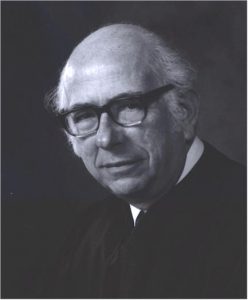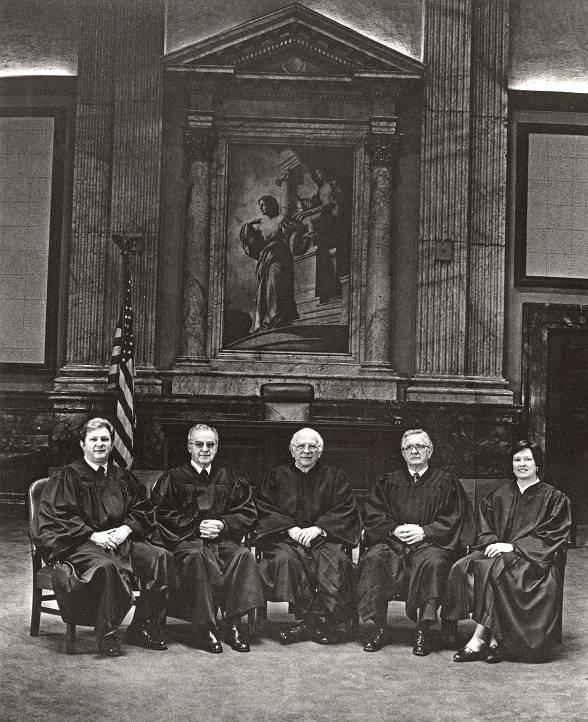
Photo info ...
Credit: United States District Court for the Southern District of Indiana via Wikimedia CommonsView Source
(June 9, 1914 – Mar. 13, 2006). Federal district judge. Judge S. Hugh Dillin’s 41-year tenure as a U.S. District Court Judge for the Southern District of Indiana was defined by his controversial orders mandating racial integration of Marion County public schools. The orders remained in effect from 1971 until 2016.
Dillin was born and raised in Petersburg in Pike County, which he maintained was his favorite place, even though he visited all seven continents during his long life. He graduated from Indiana University and its law school in 1936 and 1938, respectively. He served as a captain in the U.S. Army during World Warr II. He returned to Petersburg to practice law served four terms in the Indiana House of Representatives, the first in 1936 while still in law school. He won a seat in the Indiana Senate in 1958 where he served as president pro tem.
President John F. Kennedy nominated Dillin in 1961 to the federal bench. In 1971, Dillin held that the School Board of the (IPS) deliberately operated a racially segregated school system in violation of Brown v. Board of Education (1954). He then ordered both the integration of IPS schools and the busing of African American students from IPS to 19 other school districts in Marion County and six neighboring counties. Opposition to the order, notably from white parents who opposed racial integration, was intense. Nonetheless, Dillin earned respect for politely listening to sometimes irate citizens and then calmly explaining the reasons for his decision (see ).

While Dillin’s cross-county busing order was reversed on appeal, his order to bus students to other school districts in Marion County was affirmed. In August 1981, after a 10-year delay, approximately 5,600 African American students began to be bused from IPS to Decatur, Franklin, Lawrence, Perry, Warren, and Wayne township public schools. The busing order remained in place until 1998 when an agreement was reached to phase out busing over the next 18 years.
Dillin’s other important cases included damage claims from a at the Indiana State Fair Coliseum that killed 74; patent litigation contesting ownership of recombinant DNA technology; charges of unconstitutional conditions of prison and jail confinement; and weighty political disputes. He demanded lawyers be competent and efficient. “Save the windup and just give me the pitch,” he liked to tell them. But he was also known for his sense of humor, and he often wrote and drew amusing sayings and cartoons about life in the courtroom.
Dillin died at the age of 91, remembered as “a giant of Indiana jurisprudence but who in fact was a humble country lawyer whose love of his roots and passion for the law had no limits.”

Help improve this entry
Contribute information, offer corrections, suggest images.
You can also recommend new entries related to this topic.